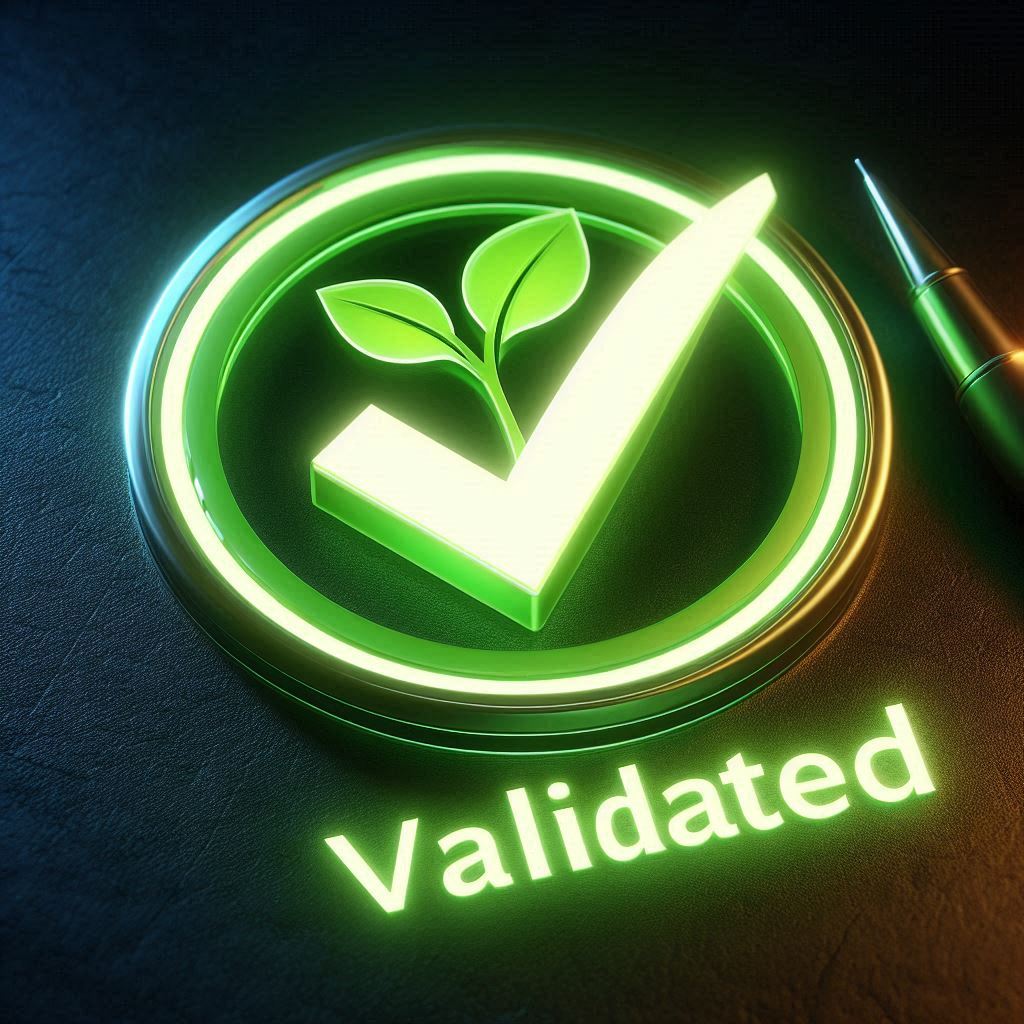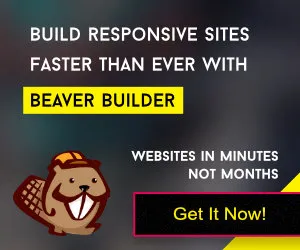Table of Contents
Toggle Learning the steps to creating a website is essential for achieving online success and ensuring that your website effectively meets its goals. A well-structured approach, which includes defining your website’s purpose, selecting the right platform, and optimizing for user experience, sets the foundation for a site that not only attracts visitors but also engages them. By understanding each step, from domain registration to content creation and SEO optimization, individuals and businesses can build a website that resonates with their target audience. This knowledge empowers creators to make informed decisions, enhance their site’s functionality, and ultimately drive conversions, making it a critical investment in their online presence.
Learning the steps to creating a website is essential for achieving online success and ensuring that your website effectively meets its goals. A well-structured approach, which includes defining your website’s purpose, selecting the right platform, and optimizing for user experience, sets the foundation for a site that not only attracts visitors but also engages them. By understanding each step, from domain registration to content creation and SEO optimization, individuals and businesses can build a website that resonates with their target audience. This knowledge empowers creators to make informed decisions, enhance their site’s functionality, and ultimately drive conversions, making it a critical investment in their online presence.
When embarking on the journey of setting up and running a profitable online business, selecting the right niche is a critical first step that can significantly impact your success. A well-chosen niche allows you to target a specific audience, making your marketing efforts more focused and effective. To identify a promising niche, start by exploring your passions, skills, and areas of expertise. Consider market demand, competition, and potential profitability by conducting thorough research using tools like Google Trends, keyword research platforms, and social media insights. Look for gaps in the market or underserved segments that align with your interests and capabilities. Remember that a successful niche should strike a balance between being specific enough to attract a dedicated audience and broad enough to sustain long-term growth.
Once you’ve identified your niche, the next crucial decision is determining the type of website you’ll build to support your online business. This choice will shape your business model, revenue streams, and overall strategy. If you’re interested in leveraging affiliate marketing, you might focus on creating a content-rich website that provides valuable information and product recommendations to your audience. This approach requires strong content creation skills and the ability to build trust with your readers. Alternatively, if you’re considering selling physical products, you’ll need to develop an e-commerce website with robust product listings, secure payment gateways, and efficient order fulfillment processes. Other options include offering digital products like courses or ebooks, providing services through a portfolio site, or creating a membership platform with exclusive content. The sequence you need to consider in creating an online business is listed step by step below:
Steps to Creating a Website
1. Deciding on a Website Business Ideal
Conceptualizing website business ideas begins with a vision and a purpose. It’s about creating a digital space that not only represents your brand or message but also provides value to your audience. The process involves careful planning, creative thinking, and a deep understanding of both your goals and your target users’ needs. A well-conceived website can serve as a powerful tool for communication, engagement, and growth.
As you embark on this journey of website business ideas, it’s essential to approach it with an open mind and a willingness to explore various possibilities. Your website business ideas should be more than just an online brochure; it should be a dynamic platform that evolves with your vision and adapts to the changing needs of your audience. With the right concept, your website business ideas can become a cornerstone of your online presence, driving success and fostering meaningful connections.
 “Learn how your website should be a dynamic platform that evolves with your vision and adapts to the changing needs of your audience. With the right concept, your website business ideas can become a cornerstone of your online presence, driving success and fostering meaningful connections. Click Here“
“Learn how your website should be a dynamic platform that evolves with your vision and adapts to the changing needs of your audience. With the right concept, your website business ideas can become a cornerstone of your online presence, driving success and fostering meaningful connections. Click Here“
2. How to Choose a Profitable Niche
When choosing a niche for your website, several key factors should be considered to ensure its potential for success. First, align the niche with your personal interests and expertise, as this will not only make the content creation process more enjoyable but also enhance your credibility and authority within the field. Passion for your niche can lead to sustained motivation, which is crucial for long-term commitment. Second, conduct thorough market research to assess demand and competition. Utilize tools like Google Trends and keyword research to identify whether there is sufficient interest in your chosen niche and to uncover any gaps you can fill. Understanding the competitive landscape will help you determine if you can differentiate your offerings and attract a loyal audience.
 “Discover the process of selecting a profitable niche, ensuring your website stands out in a competitive market plus discover the essential steps such as conducting market research, analyzing competition, and validating your niche idea. Click Here“
“Discover the process of selecting a profitable niche, ensuring your website stands out in a competitive market plus discover the essential steps such as conducting market research, analyzing competition, and validating your niche idea. Click Here“
3. Validate Website
When you validate a website idea, it is a crucial step in the journey of digital entrepreneurship. It’s the process of testing your concept against real-world conditions to determine its viability and potential for success. By thoroughly examining your idea before investing significant time and resources, you can minimize risks and increase the likelihood of creating a website that truly resonates with your target audience.
When you validate a website idea, it involves a combination of research, analysis, and experimentation. It requires you to step back from your initial excitement and objectively assess whether your website concept addresses a genuine need or solves a real problem for your intended users. This critical evaluation can save you time from pursuing an idea that may seem brilliant in theory but fails to gain traction in practice.
 “Tips to validate a website idea to determine your websites viability and potential for success. Test your idea before investing time and money. This critical evaluation can save you from pursuing an idea that may seem brilliant in theory but fails to gain traction in practice. Click Here“
“Tips to validate a website idea to determine your websites viability and potential for success. Test your idea before investing time and money. This critical evaluation can save you from pursuing an idea that may seem brilliant in theory but fails to gain traction in practice. Click Here“
4. Getting a Domain Name
A domain name is more than just a web address; it’s your online identity and the first impression visitors will have of your brand. Choosing the right domain name is crucial for your online presence, affecting everything from search engine optimization (SEO) to brand recognition. Just keep in mind your domain name is your online identity. Also, you will want to keep the domain name as short as possible and have the domain name reflect you niche avoiding numbers and hypens. Check below to see if your chosen domain name is available:
Check Domain Name Availability and Find a domain
powered by Namecheap
 “Discover how to get a domain name through one of several domain name services and what to consider before making your choice. We will delve into the various types of domain extensions available, such as .com, .org, and .net, and discuss how to select one that aligns with your brand and target “
“Discover how to get a domain name through one of several domain name services and what to consider before making your choice. We will delve into the various types of domain extensions available, such as .com, .org, and .net, and discuss how to select one that aligns with your brand and target “
5. Choosing a Hosting Provider
A reliable hosting provider ensures your website runs smoothly. Look for providers with good uptime, customer support, and scalability. Finding the right hosting service is crucial for any business looking to establish a strong online presence. With a myriad of options available, from shared hosting to dedicated servers, it can be overwhelming to navigate the choices. Each hosting service offers unique features, pricing structures, and levels of support, making it essential to evaluate your specific needs before making a decision.
Whether you’re a small business owner seeking reliable uptime, a startup needing scalable resources, or an established company looking for enhanced security, understanding the landscape of hosting services will empower you to select the best solution for your operational requirements.
 Finding the right hosting service is crucial for any business looking to establish a strong online presence. With a myriad of options available, from shared hosting service to dedicated servers.
Finding the right hosting service is crucial for any business looking to establish a strong online presence. With a myriad of options available, from shared hosting service to dedicated servers.
 SiteGround hosting offers a variety of hosting plans, including shared, managed WordPress, WooCommerce, and cloud hosting. This flexibility allows users to choose the plan that best fits their needs, whether they’re running a personal blog or a growing e-commerce site.
SiteGround hosting offers a variety of hosting plans, including shared, managed WordPress, WooCommerce, and cloud hosting. This flexibility allows users to choose the plan that best fits their needs, whether they’re running a personal blog or a growing e-commerce site.
 InMotion Hosting provides exceptional performance with a 99.999% uptime guarantee, ensuring that websites remain accessible and reliable for users. Security features are robust, offering free SSL certificates, daily backups, and advanced malware protection to safeguard websites against potential threats.
InMotion Hosting provides exceptional performance with a 99.999% uptime guarantee, ensuring that websites remain accessible and reliable for users. Security features are robust, offering free SSL certificates, daily backups, and advanced malware protection to safeguard websites against potential threats.
 Web.com is your gateway to building a powerful online presence with ease and efficiency. With user-friendly tools and 24/7 support, you can launch your website confidently and focus on growing your business while enjoying seamless integration of essential features like e-commerce and analytics. This platform empowers you to create a stunning website that reflects your brand and engages your audience.
Web.com is your gateway to building a powerful online presence with ease and efficiency. With user-friendly tools and 24/7 support, you can launch your website confidently and focus on growing your business while enjoying seamless integration of essential features like e-commerce and analytics. This platform empowers you to create a stunning website that reflects your brand and engages your audience.
 Ionos, 99.99% Uptime Guarantee Your Website, Always On!: Count on IONOS’s impressive uptime guarantee, backed by a global network of data centers, ensuring your website remains accessible and reliable for your customers around the clock.
Ionos, 99.99% Uptime Guarantee Your Website, Always On!: Count on IONOS’s impressive uptime guarantee, backed by a global network of data centers, ensuring your website remains accessible and reliable for your customers around the clock.
6. Product Research
Product research is an essential cornerstone for businesses aiming to thrive in today’s competitive landscape. By delving deep into consumer needs with product research, preferences, and market trends, companies can gain invaluable insights that drive innovation and ensure their products resonate with target audiences. This comprehensive guide explores the multifaceted world of product research, offering a roadmap for businesses to navigate the complexities of understanding their market and developing products that truly meet customer demands.
 “A wealth of information to help businesses conduct effective product research. Whether you’re a startup looking to validate a new concept or an established company seeking to refine existing offerings.”
“A wealth of information to help businesses conduct effective product research. Whether you’re a startup looking to validate a new concept or an established company seeking to refine existing offerings.”
7. Website Design Tips
Website design is a critical aspect of creating an effective online presence, and understanding how to guide users through your site is essential for success. User flow, the path a visitor takes from their entry point to their final destination on your website, plays a crucial role in determining the overall user experience and conversion rates. By carefully crafting and optimizing your user flows website design, you can ensure that visitors navigate your website design seamlessly, find the information they need, and complete desired actions with minimal friction.
Learn the process of user flows website design that enhance your website’s effectiveness and user satisfaction plus, learn the key concepts such as mapping entry points, matching messages to traffic sources, and creating different types of user flows to suit various objectives.
 “Website design is a critical aspect of creating an effective online presence, and understanding how to guide users through your site is essential for success.”
“Website design is a critical aspect of creating an effective online presence, and understanding how to guide users through your site is essential for success.”
8. Product Sources
When building an online business, choosing the right product sources is crucial for success. The landscape of e-commerce offers a diverse array of options, each with its own unique advantages and challenges. Whether you’re interested in affiliate marketing, dropshipping, digital products, services, or traditional inventory-based models, there are numerous product sources to consider, and selecting the most suitable one can significantly impact your business’s profitability and long-term viability.
 “When building an online business, choosing the right product sources is crucial for success. Explore possible product sources for your online business. Discover product sourcing options, exploring their pros and cons, potential profit margins, and best practices for implementation. Choose product sources from the list below:”
“When building an online business, choosing the right product sources is crucial for success. Explore possible product sources for your online business. Discover product sourcing options, exploring their pros and cons, potential profit margins, and best practices for implementation. Choose product sources from the list below:”
- Affiliate Marketing Sources Discover the secrets to affiliate marketing success! Learn how to choose profitable niches, build a strong online presence, and maximize your earnings.
- Digital Products: Ready to turn your passion into profit? 🌟 Discover how to sell digital products online and unlock your earning potential. Visit our site for tips and tools!
- Sell Merchandise: Ready to boost your online sales when selling things online? 🚀 Discover how to effectively sell physical products online! Learn essential strategies and the power of backlinks to drive traffic to your store. Check it out!
- Dropshippers and Wholesalers: Ecommerce entrepreneurs will find tremendous value in this extensive directory of leading dropshippers and wholesalers.
- Services Business: Creating a professional website for your services business is an essential step in establishing your online presence and attracting potential clients.
- Print on Demand: Printful is a print-on-demand service that empowers entrepreneurs, artists, and businesses to bring their creative visions to life.
9. Website Build
Setting up a website is a crucial step for anyone looking to establish an online presence, whether for personal, business, or professional purposes. In today’s digital landscape, having a website is essential for reaching a wider audience and showcasing your brand effectively. With various tools and platforms available, creating a website is now easier than ever, even for those without technical expertise. From user-friendly website builders to customizable content management systems (CMS), the options are abundant, allowing you to select a solution that best fits your needs. This flexibility empowers you to create a site that not only reflects your vision but also serves its intended purpose, whether that’s sharing information, selling products, or building a community.
Discover the process of setting up a website, from choosing the right website builder or custom solution to implementing good SEO practices to ensure your site is both functional and discoverable. Steps covered such as selecting a domain name, securing hosting, and designing your site to enhance user experience. Plus learn the importance of creating quality content and optimizing your site for search engines to attract and retain visitors.
 “Setting up a website is a crucial step for anyone looking to establish an online presence, whether for personal, business, or professional purposes. Learn the process of setting up a website, from choosing the right website builder or custom solution to implementing good SEO practices to ensure your site is both functional and discoverable. “
“Setting up a website is a crucial step for anyone looking to establish an online presence, whether for personal, business, or professional purposes. Learn the process of setting up a website, from choosing the right website builder or custom solution to implementing good SEO practices to ensure your site is both functional and discoverable. “
10. Marketing Your Website
Marketing your website effectively is crucial for attracting traffic, engaging your audience, and achieving your business goals. In today’s digital landscape, a well-executed website marketing strategy can significantly impact your online presence and business success. With the right combination of tactics, you can increase your website’s visibility in search engine results, build credibility with your target audience, and drive meaningful conversions. Effective website marketing encompasses a wide range of techniques, from search engine optimization (SEO) and content marketing to social media engagement and email campaigns. By implementing these strategies, you can create a robust online presence that not only attracts visitors but also keeps them coming back, ultimately contributing to your business’s growth and success.
 “Discover various marketing tactics that can help you promote your website and reach your target audience effectively plus explore the power of social media marketing in building brand awareness and driving traffic, the importance of link building in improving your site’s authority and search engine rankings, and the fundamental role of SEO in making your website more discoverable.”
“Discover various marketing tactics that can help you promote your website and reach your target audience effectively plus explore the power of social media marketing in building brand awareness and driving traffic, the importance of link building in improving your site’s authority and search engine rankings, and the fundamental role of SEO in making your website more discoverable.”
11. Advanced Marketing
In today’s digital landscape, simply having a website is no longer enough to guarantee success. Web creators face an increasingly competitive environment were standing out and attracting visitors requires sophisticated, data-driven strategies. Advanced online marketing techniques have emerged as powerful tools to significantly boost traffic, engage audiences, and drive conversions.
This comprehensive guide delves into cutting-edge marketing strategies that go beyond basic SEO and social media posting. We’ll explore a wide array of sophisticated techniques that leverage the latest technologies, consumer psychology insights, and data analytics to elevate your digital marketing efforts to new heights.
 “Ready to revolutionize your marketing game? 🚀 Discover cutting-edge advanced online marketing techniques that will skyrocket your brand’s success! Learn cutting-edge marketing strategies that go beyond basic SEO and social media posting”
“Ready to revolutionize your marketing game? 🚀 Discover cutting-edge advanced online marketing techniques that will skyrocket your brand’s success! Learn cutting-edge marketing strategies that go beyond basic SEO and social media posting”
12. Stay Motivated
Staying motivated to consistently market and increase sales and traffic to your website is crucial for long-term success in the online business world. In an environment where trends shift rapidly and competition is fierce, maintaining your enthusiasm and drive can be challenging. However, a positive mindset is essential, as it not only influences your approach to marketing but also impacts how you engage with your audience. Understanding that growth often takes time and persistent effort can help you navigate the ups and downs of the entrepreneurial journey. Each small step you take in marketing—whether it’s refining your SEO strategy, engaging with customers on social media, or creating compelling content—contributes to building a strong foundation for your business.
 “Stay motivated and understand that growth often takes time and persistent effort can help you navigate the ups and downs of the entrepreneurial journey online.”
“Stay motivated and understand that growth often takes time and persistent effort can help you navigate the ups and downs of the entrepreneurial journey online.”
Conclusion
Steps to creating a website involves a strategic and methodical approach that encompasses everything from initial planning to post-launch optimization. By following these 12 steps to creating a website, you can develop a website that not only looks visually appealing but also functions effectively to meet your goals and engage your target audience. From defining your website’s purpose and choosing the right platform to designing user-friendly interfaces and implementing SEO best practices, each step plays a crucial role in building a successful online presence. Remember that the steps to creating a website is an iterative process, and continuous improvement based on user feedback and analytics is key to long-term success.
As you embark on your steps to creating a website journey, keep in mind that the digital landscape is constantly evolving. Stay informed about the latest web design trends, technological advancements, and user preferences to ensure your website remains relevant and effective. Whether you’re a small business owner, a creative professional, or an entrepreneur, a well-crafted website can be a powerful tool for growth, brand building, and customer engagement. By investing time and effort into each of these 12 steps, you’ll be well-positioned to create a website that not only meets but exceeds your expectations and those of your visitors.
FAQs:
How long does it typically take to create a website?
Answer: The time required to create a website can vary greatly depending on its complexity, ranging from a few days for a simple site to several months for a large, feature-rich website.Do I need coding skills to create a website?
Answer: Not necessarily. Many website builders and content management systems offer user-friendly interfaces that allow you to create a website without coding knowledge. However, basic HTML and CSS skills can be helpful for customization.How much does it cost to create a website?
Answer: Costs can range from nearly free (using a basic website builder) to thousands of dollars for a custom-designed, professional website. Factors affecting cost include hosting, domain registration, design complexity, and functionality requirements.What’s the difference between a static and dynamic website?
Answer: A static website has fixed content that doesn’t change unless manually updated, while a dynamic website can display different content to different users and is often database-driven.How important is mobile responsiveness for my website?
Answer: Mobile responsiveness is crucial as more than half of all web traffic comes from mobile devices. A mobile-friendly site improves user experience and is favored by search engines.What is SEO and why is it important for my website?
Answer: SEO (Search Engine Optimization) is the practice of optimizing your website to rank higher in search engine results. It’s important because it helps increase visibility and organic traffic to your site.How often should I update my website?
Answer: Regular updates are important for keeping your content fresh and relevant. Aim to update your content at least monthly, and more frequently if you have a blog or news section.What security measures should I implement on my website?
Answer: Essential security measures include using HTTPS encryption, regularly updating software and plugins, implementing strong passwords, and using security plugins or services to protect against common threats.Can I create an e-commerce website using these steps?
Answer: Yes, these steps can be applied to e-commerce websites, but you’ll need to add additional considerations such as product catalog management, payment gateway integration, and shopping cart functionality.How do I measure the success of my website?
Answer: Use web analytics tools like Google Analytics to track metrics such as visitor numbers, page views, bounce rate, conversion rate, and user behavior. Set specific goals aligned with your website’s purpose and regularly review these metrics to gauge success.




















